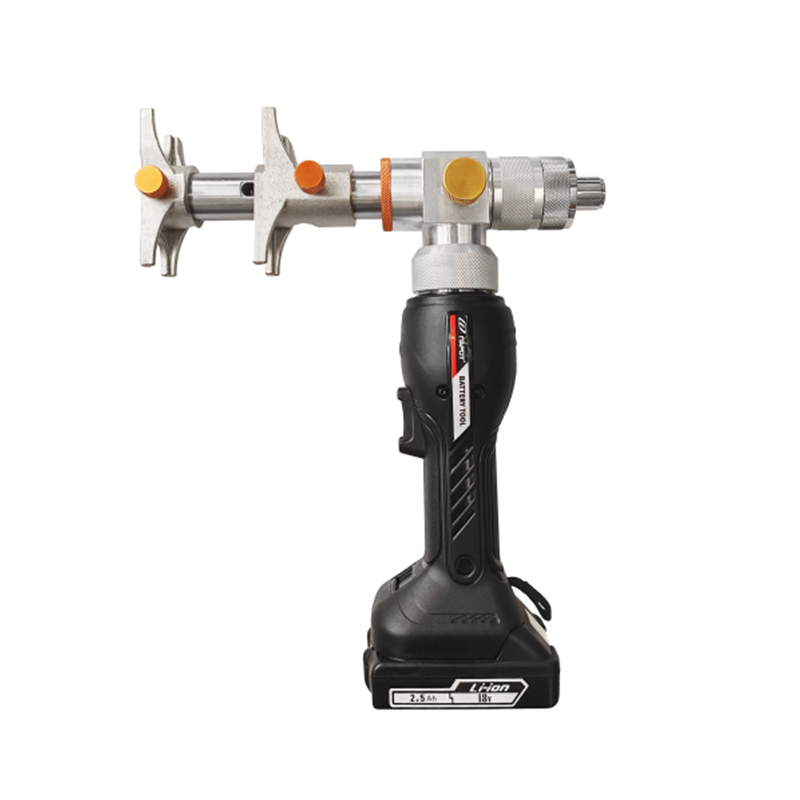 2025.06.27
2025.06.27
 Industry News
Industry News
When it comes to expanding pipes for various applications, two types of tools often come into consideration: the Battery Pipe Expander and the hydraulic expander. Both have their own strengths and are designed to assist technicians and professionals in creating proper pipe fittings. Understanding the differences between these tools can help you select the right equipment for your specific job.

The Battery Pipe Expander is a cordless, portable device powered by rechargeable batteries. It is widely appreciated for its mobility and ease of use. Without the need for hoses or external power sources, the Pipe Expander allows operators to work in confined spaces or locations where access to electricity is limited. This makes it especially useful for fieldwork and on-site repairs.
In contrast, hydraulic expanders rely on a hydraulic pump to generate the force required to expand pipes. These systems often consist of a pump unit connected by hoses to the expander head. While hydraulic expanders can provide high and consistent pressure, they usually require a more complex setup and less portability compared to the Battery Pipe Expander.
One advantage of the Battery Pipe Expander is its straightforward operation. Typically, it involves positioning the expander head into the pipe and activating the tool, which then expands the pipe end to the desired diameter. The cordless design means that technicians can quickly move from one job to another without managing cables or hoses. This convenience can improve efficiency during busy maintenance or installation tasks.
Hydraulic expanders, on the other hand, are often favored for jobs requiring very high expansion force or working with thicker-walled pipes. The hydraulic system can deliver smooth and controlled pressure, which is beneficial for precision tasks. However, the added equipment weight and setup time can limit its practicality in some field situations.
In terms of maintenance, the Battery Pipe Expander usually requires less upkeep due to fewer mechanical components and the absence of hydraulic fluid. Battery health and charging are the primary concerns, and modern batteries often provide sufficient runtime for job site needs. Hydraulic expanders require regular inspection for leaks, hose wear, and fluid levels to ensure reliable operation.
When selecting between the Battery Pipe Expander and the hydraulic expander, consider the environment where you will be working. If you often work outdoors or in locations without easy access to power, the Pipe Expander offers unmatched flexibility. Its compact form factor and lightweight design make it suitable for technicians who need to carry their tools over long distances or into tight spaces.
Hydraulic expanders may be better suited for workshops or industrial environments where power supply and workspace are less of a concern. The robust pressure capability of hydraulic systems can be advantageous when working with pipes that require substantial force to expand without risking damage.
Another point to consider is the type of pipes you typically work with. For thin-walled or smaller diameter pipes, the Battery Pipe Expander generally provides sufficient force and control. For larger diameter pipes or those made from tougher materials, a hydraulic expander might deliver better performance.
Cost and budget are additional factors. The Battery Pipe Expander tends to have lower initial costs and reduced operational expenses because it eliminates the need for hydraulic fluid and complicated pump systems. Hydraulic expanders often require more investment and ongoing maintenance costs.
In terms of safety, both tools have features designed to protect operators during use. The Battery Pipe Expander’s cordless design reduces tripping hazards caused by cables. Hydraulic systems require careful handling to avoid fluid leaks or sudden pressure releases. Proper training is essential for operating either type of expander effectively and safely.
Ultimately, the decision between a Battery Pipe Expander and a hydraulic expander depends on your specific work conditions, pipe materials, and job requirements. The Pipe Expander excels in portability and ease of use, making it suitable for many field applications. Hydraulic expanders provide powerful, consistent force that benefits high-demand or stationary operations.